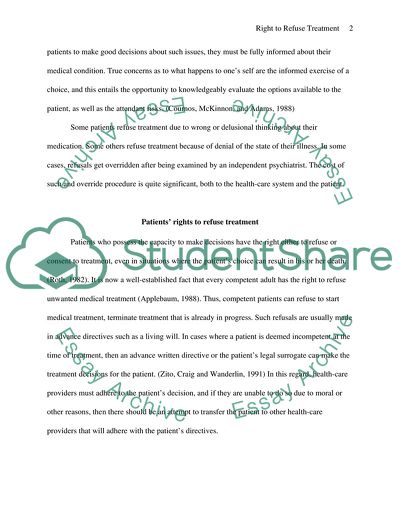Cite this document
(“Right to Refuse Treatment Research Paper Example | Topics and Well Written Essays - 1500 words”, n.d.)
Right to Refuse Treatment Research Paper Example | Topics and Well Written Essays - 1500 words. Retrieved from https://studentshare.org/nursing/1437064-right-to-refuse-treatment
Right to Refuse Treatment Research Paper Example | Topics and Well Written Essays - 1500 words. Retrieved from https://studentshare.org/nursing/1437064-right-to-refuse-treatment
(Right to Refuse Treatment Research Paper Example | Topics and Well Written Essays - 1500 Words)
Right to Refuse Treatment Research Paper Example | Topics and Well Written Essays - 1500 Words. https://studentshare.org/nursing/1437064-right-to-refuse-treatment.
Right to Refuse Treatment Research Paper Example | Topics and Well Written Essays - 1500 Words. https://studentshare.org/nursing/1437064-right-to-refuse-treatment.
“Right to Refuse Treatment Research Paper Example | Topics and Well Written Essays - 1500 Words”, n.d. https://studentshare.org/nursing/1437064-right-to-refuse-treatment.


